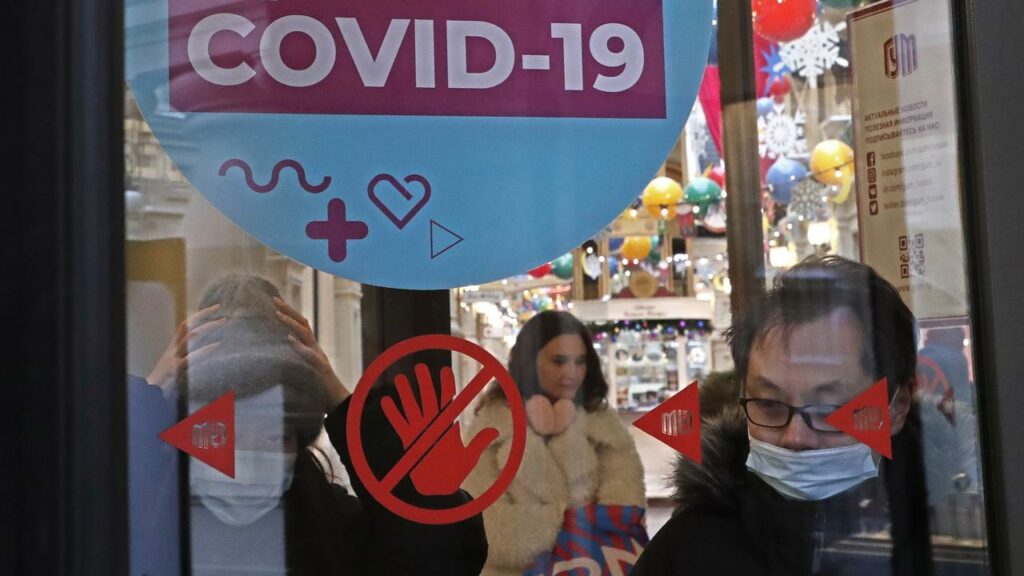French, Russia curbs fall amid China spike
|

Most coronavirus restrictions have been lifted in France while masks will no longer be mandatory in the Russian capital and the United Kingdom is scrapping passenger forms – but confirmed infection numbers are rising in China.
France terminated most COVID-19 restrictions on Monday, ending the need for face masks to be worn in the majority of public places and allowing the unvaccinated back into bars, restaurants and cinemas.
The move comes less than a month before the first round of a presidential election and just as the number of new coronavirus infections trends upwards again, prompting questions among some scientists over whether the easing is premature.
“We can breathe,” said construction worker Jean-Yves Richard, “and smell things we haven’t smelled in a while”.
Bank employee Virginie de Busschere said the removal of masks in the workplace delivered a psychological boost.
“I feel lighter, we can see people’s smiles again.”
Masks no longer have to be worn in schools, offices and shops although they remain mandatory in hospitals and in public transport.
Meanwhile, from Monday, people will no longer have to show proof of vaccination to get into bars, nightclubs, museums, stadiums and long-distance trains.
France’s “vaccine pass” rules fuelled weeks of street protests when they were first announced.
France recorded more than 60,000 new COVID-19 cases on Sunday, up a third on the previous week.
Jean-Francois Delfraissy, head of France’s Scientific Council which advises the government on COVID-19 policy, urged caution and said at-risk people should continue wearing masks.
“The pandemic isn’t over yet,” Delfraissy told RTL radio.
The Russian capital Moscow has decided to lift the mandatory use of face masks due to falling numbers of coronavirus cases.
“Steady improvement in the epidemiological situation allows us to take a long-awaited decision,” Moscow Mayor Sergei Sobyanin wrote on his blog on Monday.
“As of Tuesday, we are waiving the requirement to wear protective masks,” he said.
Companies are no longer obliged to carry out temperature checks on workers and to install partitions at workplaces.
The UK will ditch the need for incoming travellers to fill in a passenger locator form, removing the last remaining COVID-19 travel measures from Friday, transport minister Grant Shapps said on Monday.
He said the changes, which also include the requirement for unvaccinated people to be tested for COVID-19 before entering the UK, will “mean greater freedom in time for Easter”.
A northeastern Chinese province on Monday imposed a rare travel ban on its population as the region’s Omicron outbreak helped drive China’s tally of new local COVID-19 cases so far this year higher than any recorded in 2021.
Mainland China reported 1337 new domestically transmitted COVID-19 infections with confirmed symptoms on March 13, the National Health Commission said on Monday.
That brought the registered total this year to more than 9000 compared with 8378 in 2021, according to Reuters calculations.
More than 30 per cent of the 2022 cases were found in the northeastern province of Jilin, which is scrambling to rein in the fast spread of the Omicron BA.2 sub-variant of the coronavirus.
Jilin announced that all its 24.1 million residents were prohibited from travelling out of or into the province, or across different areas within the province.
Those who indeed must travel must notify the local police and will be subject to a quarantine requirement upon returning, according to a provincial government statement.
In the past week, new COVID-19 cases have been reported in Beijing and the financial hub Shanghai – China’s most populous cities – as well as in the provinces of Guangdong, Jiangsu, Shandong and Zhejiang along the coast.
with reporting from DPA and PA
Reuters